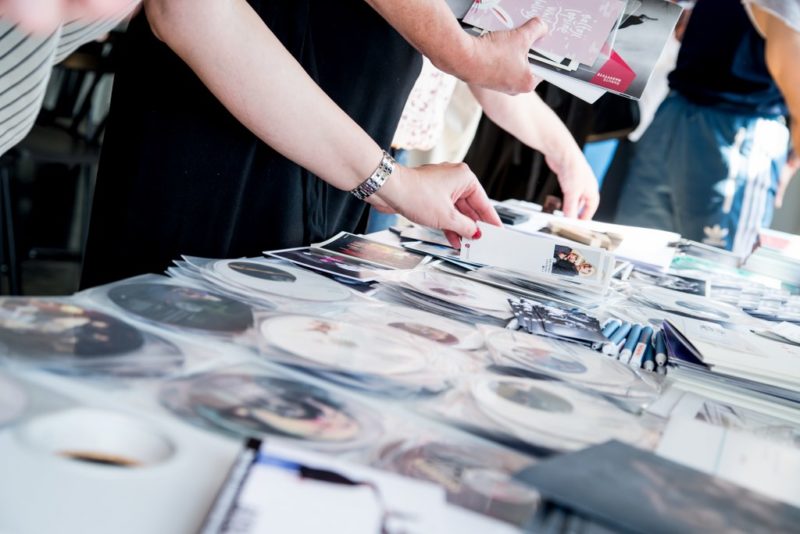Foreign experts experienced Lithuanian dance, bringing home wonderful experiences and plans for cooperation

The international Naujasis Baltijos Šokis’17 festival was attended by nine festival planners, producers, organisational leaders and dance critics from the United Kingdom, Israel, South Korea and Germany who learned about contemporary Lithuanian dance and are making plans for potential cooperation.
The visit of the influential dance professionals in Lithuania was financed by the Visiting Experts Programme being curated by the Lithuanian Culture Institute. Naujasis Baltijos Šokis not only provided guests with the opportunity to see the performances in the festival’s programme, but also organised a presentation of Lithuanian dance – an opportunity to meet the dance performances’ creators and managers over short, 15-minute excerpt sessions.
Vytis Jankauskas’ dance theatre (presented the première of the Agonija performance on the eve of the festival), the Padi Dapi Fish dance theatre (the Dior in Moscow performance), the creators of (g)round zero, the Stage Strangers group (the Contemporary? performance), Miglė Praniauskaitė (the Reconstruct performance), the Low Air urban dance theatre (Sacre and Žaidimas baigtas), Petras Lisauskas (Buterfly Man and sms/ Suggest Me Service), the Aura dance theatre (Twister and Kiborgų Žemė), Liza Baliasnaja (Figures), Greta Grinevičiūtė, and Agnietė Lisičkinaitė (B&B Dialogue) all presented their performances to the audience.
According to Ofra Idel, one of the founders of the Machol Shalem dance house in Jerusalem, this visit was an excellent way to learn about the variety of contemporary Lithuanian dance for her and her colleagues: “Your dances have so many different faces, genres and styles – it was a great pleasure to experience that in such a small country! I’d even say I was surprised, although perhaps I shouldn’t have been. It was also nice to learn that many of your dance companies and performers are active in the international arena, performing often and making efforts to be seen around the world. When visiting Lithuania, it’s very important to see that artists here are looking not just for additional financing, but for real opportunities to collaborate as well – that they truly want to create something with colleagues from other countries!” the visitor said.
Machol Shalem is one of the main dance stages in Jerusalem. It provides local artists with aid in the development of projects and presenting them to local audiences. Ofra Idel is also the head of the Jerusalem International Dance Week organised by the dance house and of the international choreography competition. During the visit, Idel had many ideas about potential collaboration with the Art Printing House as a starting area for young artists – including the organisation of artist or platform exchange projects. Last year, the Aura dance theatre presented their work in Jerusalem. The Low Air urban dance theatre will visit the city in June, and Idel intends to continue her collaboration with these Lithuanian artists.
The expert from South Korea was SIDance festival art director and CID-UNESCO Korean division president Jong-Ho Lee. Not only did he participate in Naujasis Baltijos Šokis events, he also got to know other dance organisations in Vilnius, Kaunas and Klaipėda and see quite a few performances. The dance critic and festival organiser praised the high level of professionalism of the performers and performances and wondered at their spirit of professional competition. “I’d like to say that Lithuanian dance is totally unknown in Asia and Japan. I plan to offer Lithuanian production at several festivals happening this autumn in Korea,” said Jong-Ho Lee, revealing his plans.
In the mean time, the guest from the United Kingdom – Critic Circle performing arts critic dance committee council member and UK National Dance Award Commission representative Graham Watts – was surprised by Lithuanian dance performance creators’ original ideas and sense of humour.
The Visiting Experts Programme has been operating since 2014. Throughout 2016, the Lithuanian Culture Institute financed and curated 110 visits from experts in various artistic fields. The fruits of those efforts have been various Lithuanian artists’ exhibitions, performances, concerts and other projects inspired or curated by experts from their respective countries.